Seventh Generation
997. Conley Horton O'Kelley was born on 1 September 1927 in HIWASSE, Benton Co, AR. 36.415212,-94.340589, graduated from Alma High School in 1945 and enlisted in the US Navy November 4 1945.158 He died in his home 1 January 2009 in Alma AR.159 Conley was buried at Newberry Chapel Cemetery 5 January 2009 in Alma AR.138,160 After his discharge from the US Navy November 7 1947 Conley attended Oklahoma State University Institute of Technology in Okmulgee Oklahoma June 7 to September 29 1948 in Body and Fender.
 |
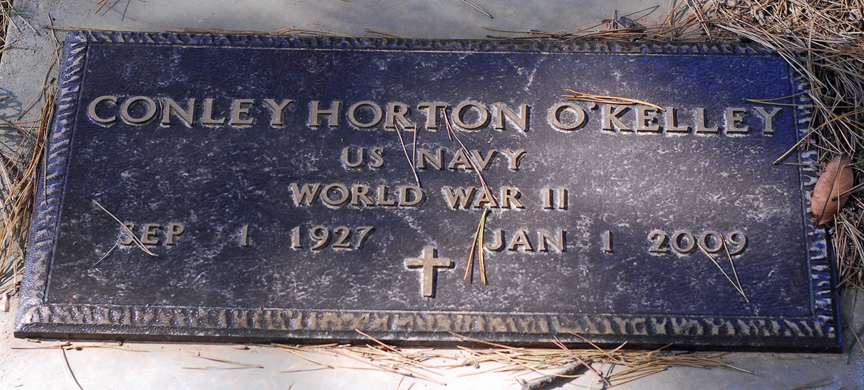 |
 Rudy School Photo, Rudy Arkansas about 1933 or 1934 |
|
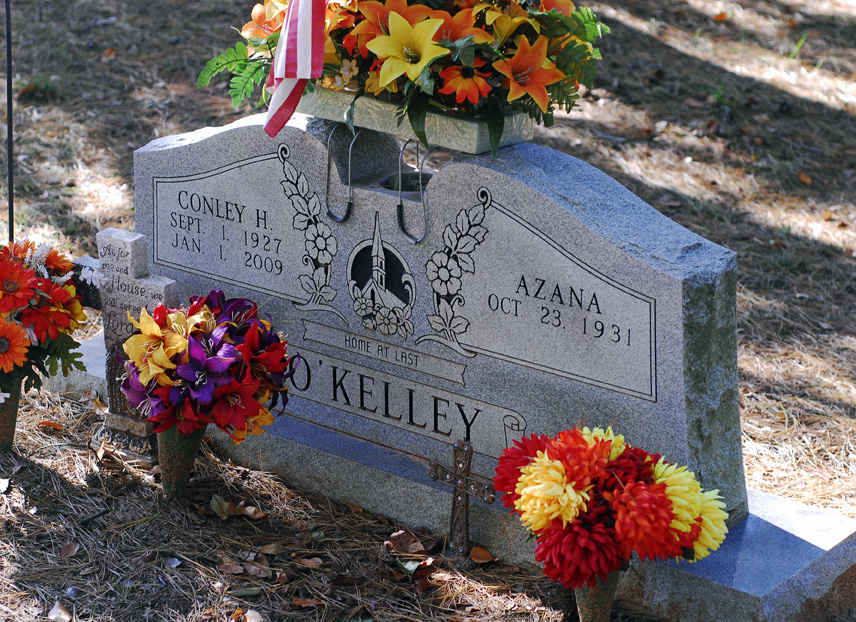 |
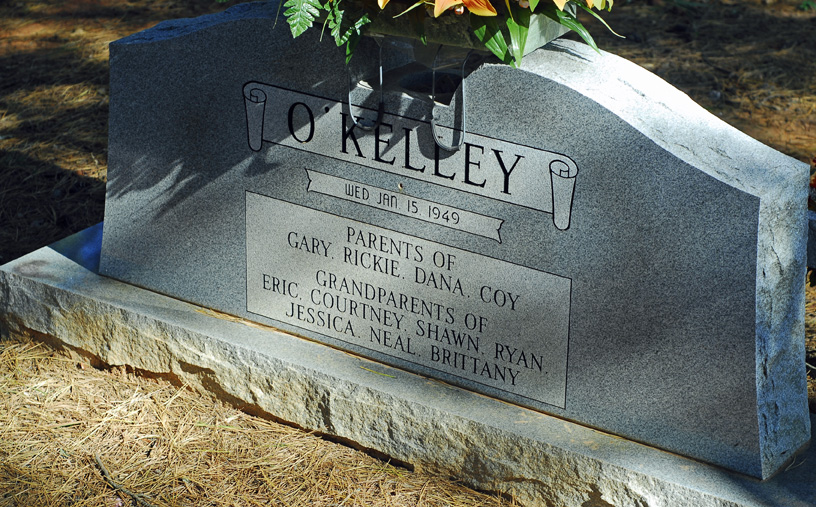 |
||
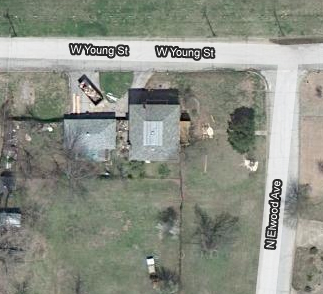 |
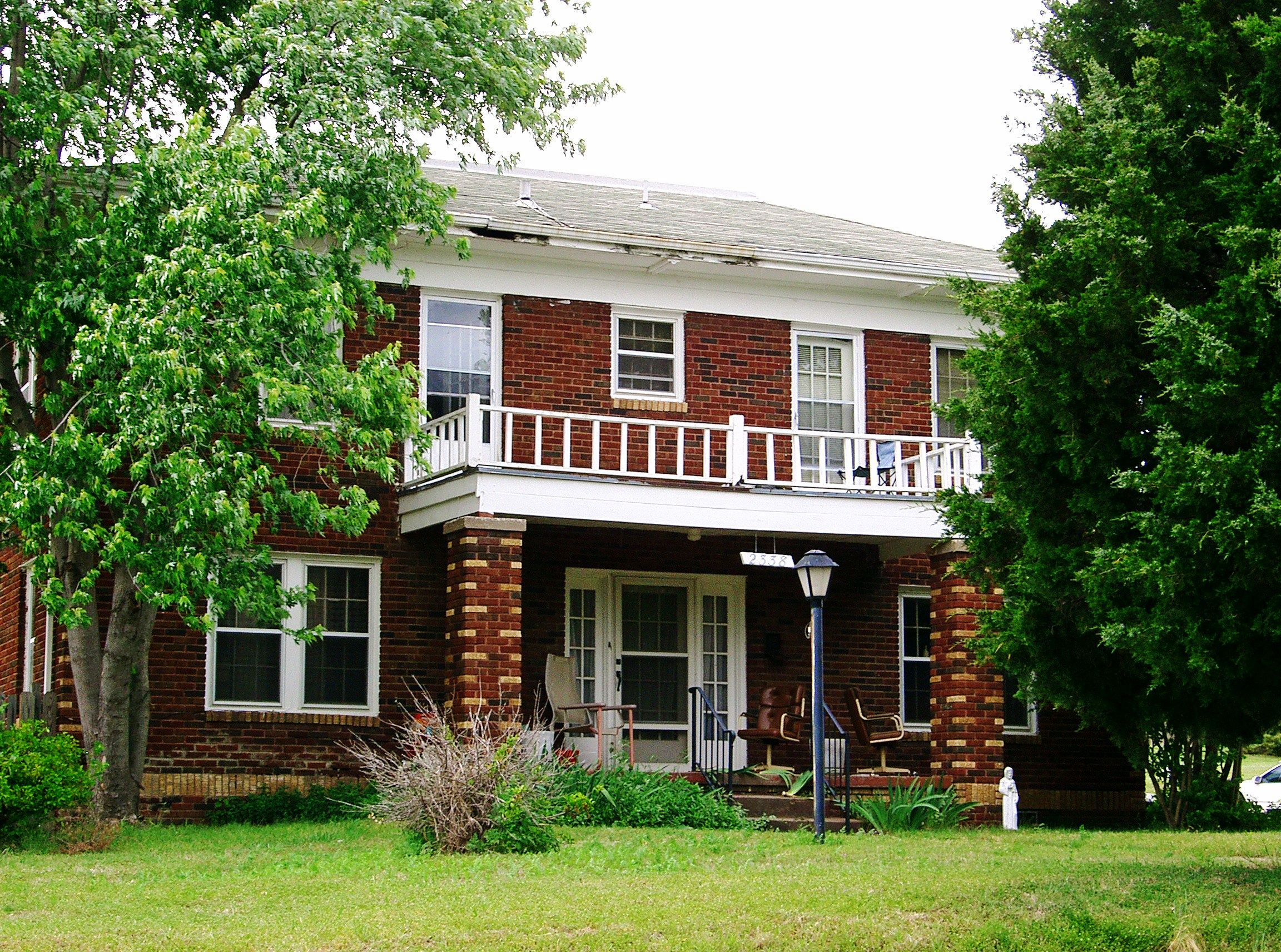 |
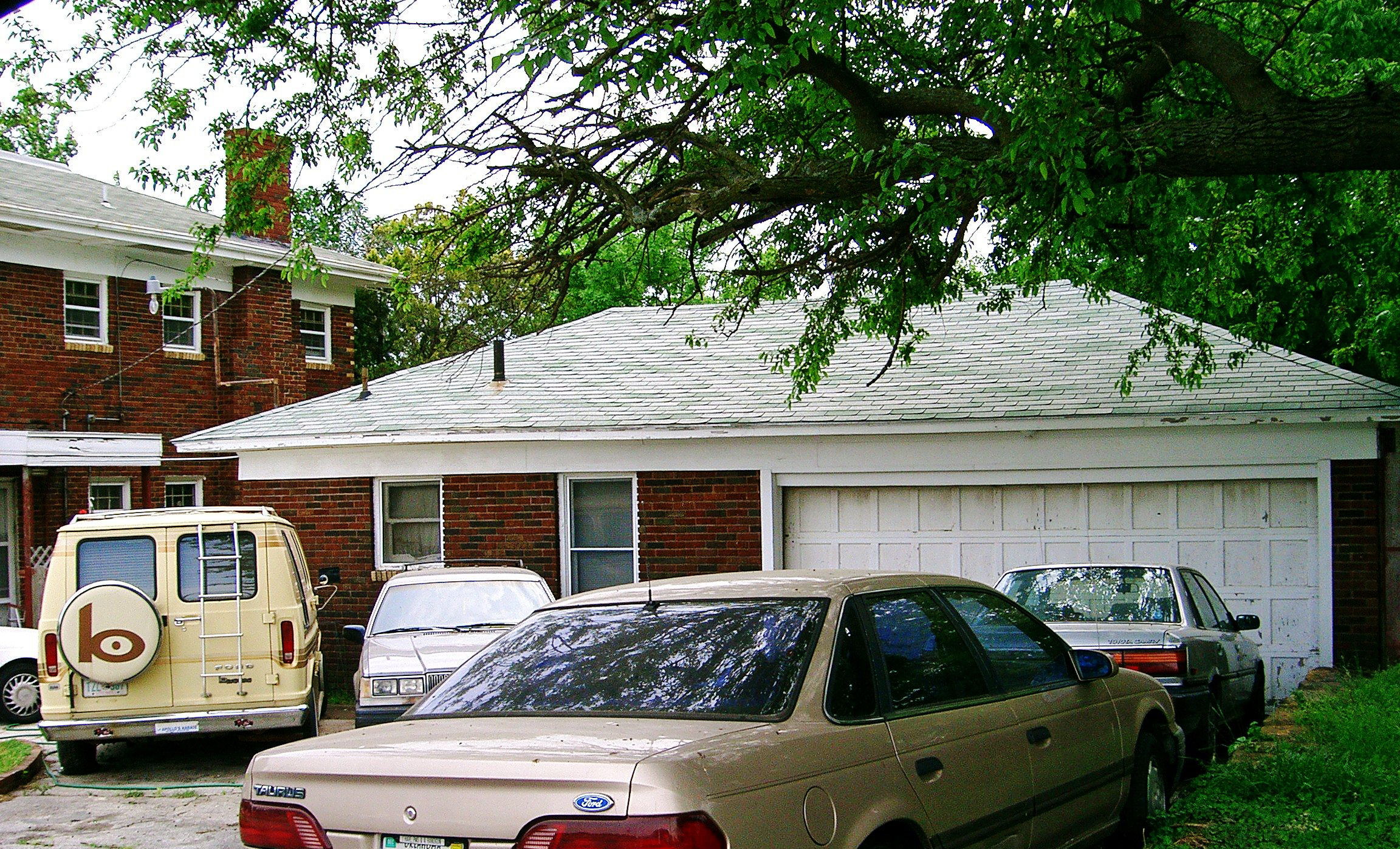 |
| Conley, Azana, and Gary lived in a garage apartment behind the main home on N Elmwood Ave Tulsa OK in 1951. | ||
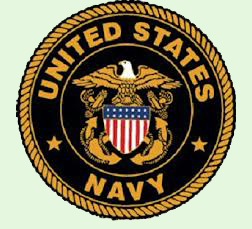 US NAVY
US NAVY
Enlisted Nov 4 1945 - Honorable discharged Nov 7 1947
Seaman Second Class E2 Serial Number 347 27 18
Cold War Veteran
Operations Crossroads Bikini Island A Bomb Test July 1 1946 Joint Taskforce 1, Task Group 1.8 Service Group, Task Unit 1.8.1 aboard the ARD-29 which after Crossroads was stationed at Pearl Harbor in the late summer of 1946 until discharge in 1947
Comments by Rick O'Kelley
Combat in World War II officially ended Sept 2 1945 with the surrender of Japan but the US Army continued to draft to support the after WWII effort until 1947. Growing up my father talked sometimes of his Navy service but it wasn't until April 13 2006 while visiting with a Mr Hershel Keith who owned the farm in Hiwasse Arkansas that my father was born upon in 1927 that I heard how my father came to be in the US Navy. Mr Keith told about his WWII US Army Air Force military service which I found of great interest so I was asking him questions and after Mr Keith finished my father told how he came to be in the US Navy. If my father had told me his story before, I have no memory. My father turned 18 years old Sept 1 1945 and like me he said he was drafted not long after into the US Army so he tried to enlist in the US Navy but was turned down because his Army physical had identified that he had a fast heart beat which didn't disqualify him from being drafted for Army duty. My father told Mr Keith that while he was at the induction center waiting to be sworn into the Army a Navy man approached his group and asked if they would rather be in the Navy than the Army. My father said he told the Navy man that he tried to enlist in the US Navy but was turned down. The Navy man told Conley to follow him and took him down the hall where he was sworn into the US Navy.
The Basic Training for the USN was four months long and while my father never said, I doubt he was allowed to travel home over Thanksgiving or Christmas in 1945, those luxuries were not permitted in Basic Training. I did six weeks Air Force Basic Military Training so my father had 10 additional weeks of basic training longer than I. I was flown to San Antonio Texas for BMT, mine was a single day's journey but my father was transported by train from Little Rock Arkansas to San Diego California so his would have taken several days by train. After completion of his Navy Basic Training he was transported by the US Navy to his duty station where he appears in the records arriving March 21, 1946 on the ARD-29 an Auxiliary Repair Dock which was based in the Marshall Islands for several months then later at Pearl Harbor Hawaii. I find it ironic that my father arrived on station March 21 1946 and I arrived at Lackland Air Force base to begin my USAF Basic Training March 21 1972 or 26 years to the day after my father arrived on the ARD-29 to begin his Navy duties. The ARD-29 provided basic repair for destroyers and submarines as well as accommodations, including food and laundry services for the sailors aboard the vessels being repaired. When possible the sailors would sometimes continue to live on the ship being repaired.
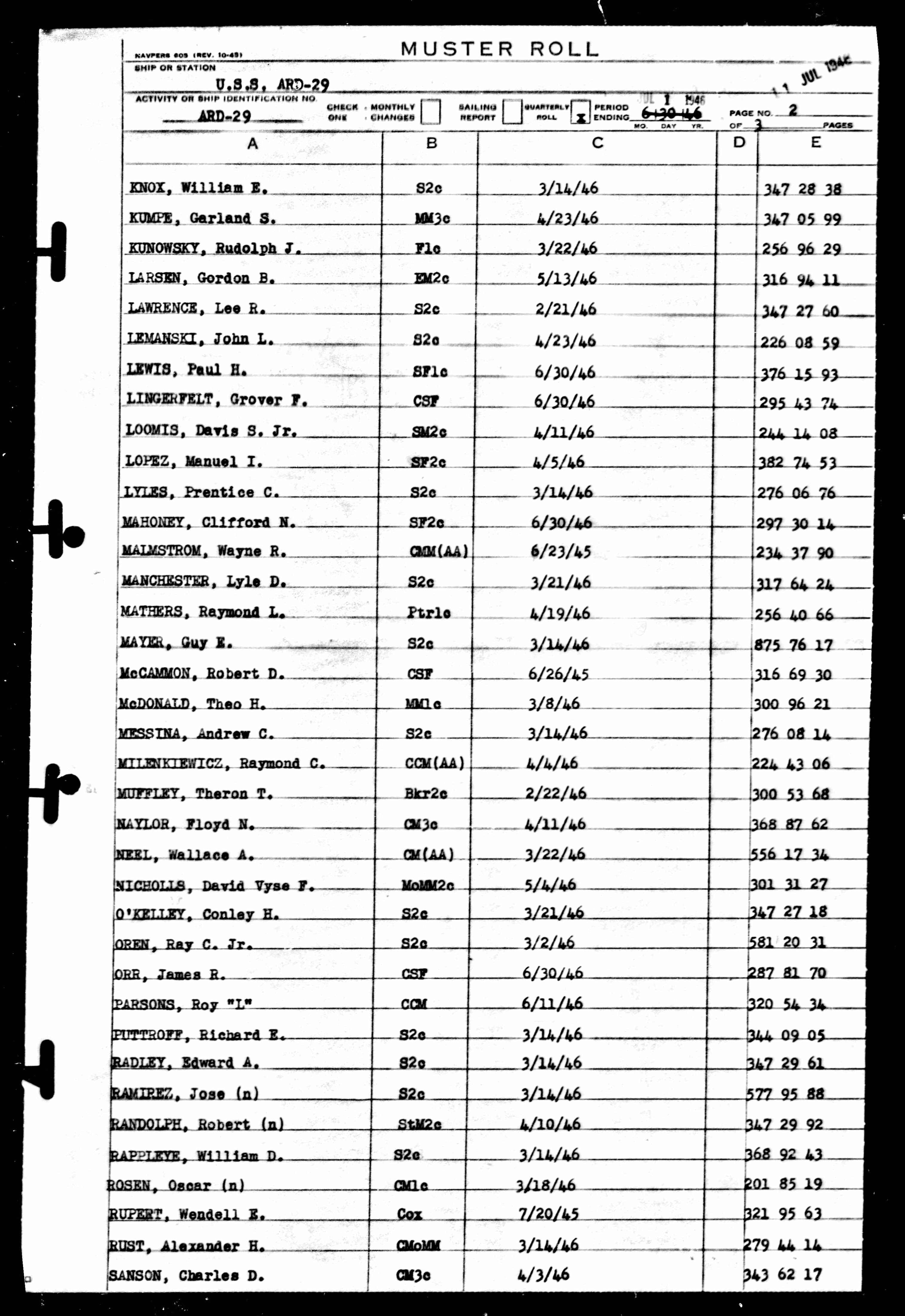 The
ARD-29
was one and a half times the size of a regulation football field so it was
very large but it did
not have an engine to power its movements, it was actually a barge that was towed by an
ocean going tug, likely the
ATA-124 or
ATA-187 and they pulled the ARD-29 to where it was to be used.
To operate the dock they would flood its tanks much like a submarine and
that would lower the dock
into the water, open its gates then pull the ship to be repaired into the dock
much the way ships are pulled through the locks in the Panama Cannel then
they
close the gates and pumped out the sea water thus raising the dock and
providing a dry place to make their repair. It worked very much like
the locks on the Arkansas River except when the locks or gates were closed
on the
ARD-29
all the water was pumped out. The
ARD-29
had three large pumps able to pump 15 thousand gallons a minute, it could
empty the water from its hold in 45 minutes or less, that was determined by
the size of the ship or submarine it contained in its hold, the larger the
ship less water to be pumped out. The
ARD-29 was a new dock
but had been sunk October 2 1945 by
Typhoon Louise but it was raised and repaired the records are not clear where this repair took place or
where the
ARD-29
was when my father boarded it but my father told about being aboard a
ship made out of concrete and that may have been the transport ship that
took him to the
ARD-29.
The records indicate the
ARD-29
was in the
Marshall Islands as my father had a card issued to him by the US Navy
documenting that he was part of the
Bikini
Island
A Bomb
Operation Crossroads tests in the summer of 1946. I asked my
father about this in the years preceding his diagnosis for Alzheimer and he
said he and his mates wore their deck shoes and boxers wading in the sea
water mixed with ash in the hold as they cleaned the ships that had been
part of the test. Even when I was a child my father told how the
officers and scientist who came aboard the
ARD-29
to inspect the ships that survived the bombs while they were in the hold wore
protective suits, gas masks and some carried
Geiger
counters. The sailors like my father who did the clean up work had
no protective clothing. I have read the accounts by others who were at
Operation Crossroads and found them to be very similar to the experience
of my father's. In addition to his service being considered part
of WWII, having been an eye witness to the Atomic Bomb blasts at Bikini Island, my father
is also included as a 1945 to 1991
Cold War
Veteran and is eligible for a
certificate. My father likely spent his 1946 Thanksgiving and
Christmas in Honolulu Hawaii where the ARD-29 was stationed for the
remainder of his service when he was discharged from the US Navy November 7,
1947. I recall my father telling how he traveled back to Arkansas by
train via a route that took him through the Royal Gorge in Colorado.
The
ARD-29
was one and a half times the size of a regulation football field so it was
very large but it did
not have an engine to power its movements, it was actually a barge that was towed by an
ocean going tug, likely the
ATA-124 or
ATA-187 and they pulled the ARD-29 to where it was to be used.
To operate the dock they would flood its tanks much like a submarine and
that would lower the dock
into the water, open its gates then pull the ship to be repaired into the dock
much the way ships are pulled through the locks in the Panama Cannel then
they
close the gates and pumped out the sea water thus raising the dock and
providing a dry place to make their repair. It worked very much like
the locks on the Arkansas River except when the locks or gates were closed
on the
ARD-29
all the water was pumped out. The
ARD-29
had three large pumps able to pump 15 thousand gallons a minute, it could
empty the water from its hold in 45 minutes or less, that was determined by
the size of the ship or submarine it contained in its hold, the larger the
ship less water to be pumped out. The
ARD-29 was a new dock
but had been sunk October 2 1945 by
Typhoon Louise but it was raised and repaired the records are not clear where this repair took place or
where the
ARD-29
was when my father boarded it but my father told about being aboard a
ship made out of concrete and that may have been the transport ship that
took him to the
ARD-29.
The records indicate the
ARD-29
was in the
Marshall Islands as my father had a card issued to him by the US Navy
documenting that he was part of the
Bikini
Island
A Bomb
Operation Crossroads tests in the summer of 1946. I asked my
father about this in the years preceding his diagnosis for Alzheimer and he
said he and his mates wore their deck shoes and boxers wading in the sea
water mixed with ash in the hold as they cleaned the ships that had been
part of the test. Even when I was a child my father told how the
officers and scientist who came aboard the
ARD-29
to inspect the ships that survived the bombs while they were in the hold wore
protective suits, gas masks and some carried
Geiger
counters. The sailors like my father who did the clean up work had
no protective clothing. I have read the accounts by others who were at
Operation Crossroads and found them to be very similar to the experience
of my father's. In addition to his service being considered part
of WWII, having been an eye witness to the Atomic Bomb blasts at Bikini Island, my father
is also included as a 1945 to 1991
Cold War
Veteran and is eligible for a
certificate. My father likely spent his 1946 Thanksgiving and
Christmas in Honolulu Hawaii where the ARD-29 was stationed for the
remainder of his service when he was discharged from the US Navy November 7,
1947. I recall my father telling how he traveled back to Arkansas by
train via a route that took him through the Royal Gorge in Colorado.
Having grown up first in the Great Depression then World War II, having
witnessed first hand the denotation of two
Atomic Bombs, in the late summer of 1946 the
ARD-29
was assigned to Pearl Harbor and this must have been something for my 18
then 19, and finally 20 year
old father. My father was an unmarried farm boy from
Rudy Arkansas
who knew nothing but hard work and poverty so being stationed in exotic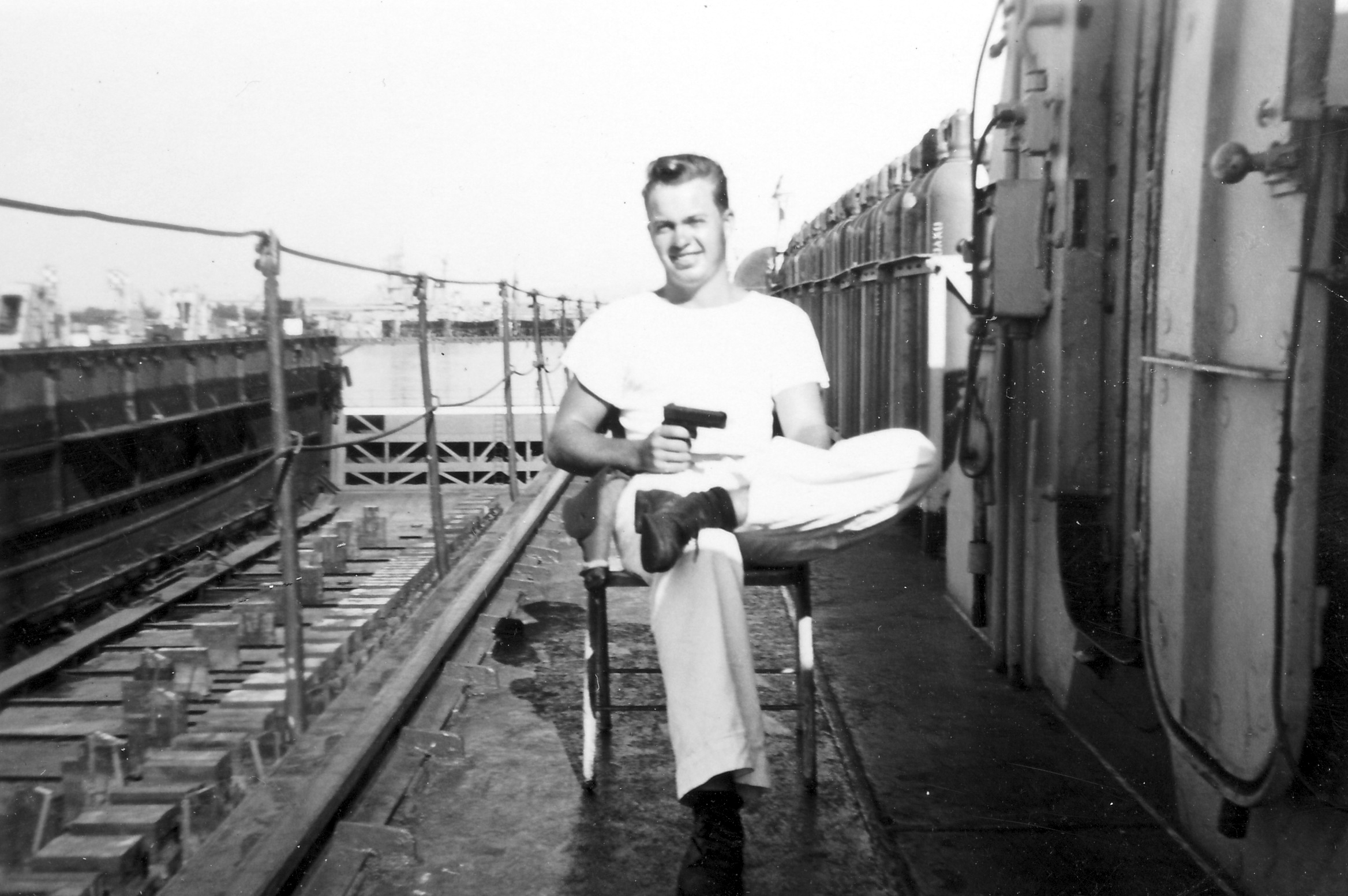 Pearl Harbor as
a United States Navy Seaman with probably more money in his pocket that was his own to
spend than he had seen in his entire young life time. My father was free to explore this very popular
and exotic Navy port so soon after the
ending of WWII. The Pearl Harbor of today was much different in 1946 and
1947, it was a wild and care free place that my father would sometimes tell
his sons just a tiny bit of his days there. I recall my experience as a 20 year old
unmarried Airman on
my own first in Denver Co and then later in
Blytheville Arkansas when I was taking motorcycle trips to the big city of
Memphis TN
with my friends that I met in the Air Force so I know my father must have had many
experiences while in Pearl that he never shared with his sons or with my
mother. I bet my father experience the same freedom and exhilaration as I did
because you are not really free until you are free from your parents
influence and outside the reach of your community and most people of my father's generation and my generation
obtained such freedom only in the military service. Having tasted such
independence, it isn't easy to surrender it but my father did. I have
been far more reluctant, I have held on to as much of my freedom and
independence as I can. The photo to the
right shows
my father on armed guard duty, big grin on his face, showing off his
Government Model military issued .45 Auto sidearm. I carried a
.45 Sig Saur as my last duty
weapon as a Deputy Sheriff.
Pearl Harbor as
a United States Navy Seaman with probably more money in his pocket that was his own to
spend than he had seen in his entire young life time. My father was free to explore this very popular
and exotic Navy port so soon after the
ending of WWII. The Pearl Harbor of today was much different in 1946 and
1947, it was a wild and care free place that my father would sometimes tell
his sons just a tiny bit of his days there. I recall my experience as a 20 year old
unmarried Airman on
my own first in Denver Co and then later in
Blytheville Arkansas when I was taking motorcycle trips to the big city of
Memphis TN
with my friends that I met in the Air Force so I know my father must have had many
experiences while in Pearl that he never shared with his sons or with my
mother. I bet my father experience the same freedom and exhilaration as I did
because you are not really free until you are free from your parents
influence and outside the reach of your community and most people of my father's generation and my generation
obtained such freedom only in the military service. Having tasted such
independence, it isn't easy to surrender it but my father did. I have
been far more reluctant, I have held on to as much of my freedom and
independence as I can. The photo to the
right shows
my father on armed guard duty, big grin on his face, showing off his
Government Model military issued .45 Auto sidearm. I carried a
.45 Sig Saur as my last duty
weapon as a Deputy Sheriff.
Now I know this will aggravate my mother but when my father was young and before he started attending church my Dad was a fun father. Many who knew him in his church years will not believe it when I report that he use to drink beer and he gave me my first taste but I never developed a liking for beer and my father gave it up before I started school. He told his sons he use to smoke but gave it up when the ship stores were mildewed, and he said the cigarettes came from a concrete supply ships that always wept sea water into the holds. I believe my father had a friend from Rudy name Howard Gentry who was also in the US Navy and was stationed in Hawaii.
To demonstrate that my father was an ordinary red blooded man at one time,
in 1955 we traveled to
Monte Ne,
a concrete city
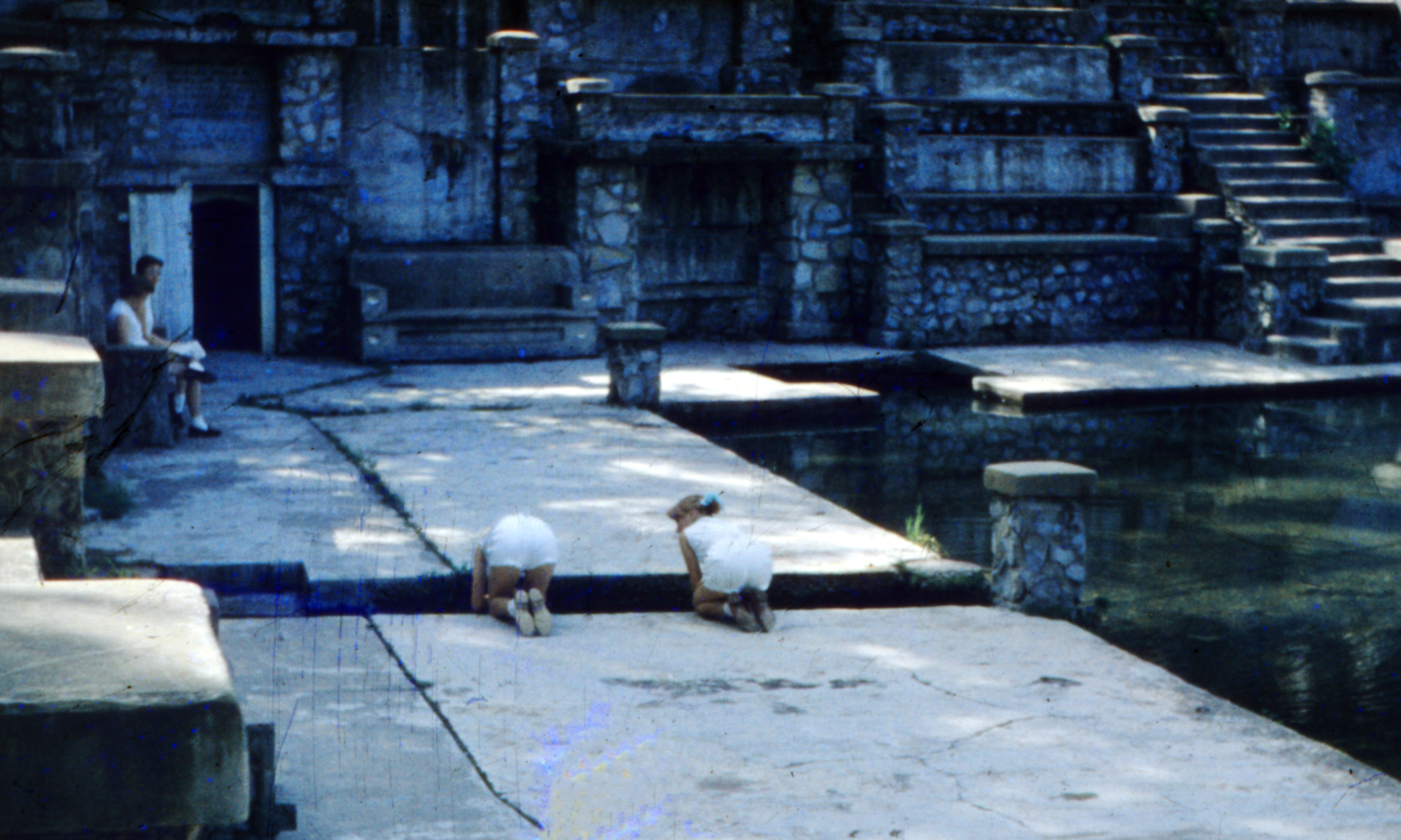 that
is today under
Beaver Lake and dad took
photos
of me and of
me and my older brother
Gary but he also took this photo of two girls in shorts so before dad
started going to church he was very much like his sons were when they were
young men.
that
is today under
Beaver Lake and dad took
photos
of me and of
me and my older brother
Gary but he also took this photo of two girls in shorts so before dad
started going to church he was very much like his sons were when they were
young men.
It was in the summer of 1946 when the ARD-29 was part of the Bikini Atomic Bomb test code named Operations Crossroads. My father's name appears on the US Navy Muster Rolls for July 1 1946. His name also appears on the March 31, April 1 1946 ARD-29 Muster Rolls and again on May 14 1946. Conley was lucky, he had few problems as a result of his exposure to the ash but he died of Alzheimer which someday in our future science may discover that the Atomic tests done in the 40s, 50s, and 60s may be the cause of some of these diseases. It is also unknown just how radiation impacted the DNA that he passed on to his four sons and we have passed on to our children. It is likely we are different from what we would have been if he had not been exposed to such.
I assume that the ARD-29 was his only ship of duty, he made mention of the concrete ship but this was likely a supply barge that bought them supplies and mail. The only rosters that my father's name appear on are those of the ARD-29. Years later a movie titled Bikini Radio was made about these 1946 bomb test. I bought my father the movie on DVD hoping it might help him reconnect to some of this lost memories of his youth taken from him by his Alzheimer. He was able to recall only small bits of that experience. While my father may have told me and I just don't remember, I suspect that he discharged out of the Navy in San Diego and took an out of the way train trip home because he took a train through the Royal Gorge in Colorado. He talked about it numerous times, he told about seeing the Arkansas River in places where one could almost step across. When I was a child my father often said he wanted to take our mother to Hawaii and to Royal Gorge, he was most impressed with Royal Gorge but my mother never had this love of the land and places that my father and I share. For her, a trip was made only to visit kin she had little interest in the handiwork of God. Mom was prone to becoming car sick so even a trip to see kin was rare. Pretty much it was short trips to see her parents and brothers and sisters living less than 15 miles. She didn't like visiting my father's parents or brothers and sisters than much so we didn't except for the O'Kelley reunion held on the 4th of July and supper at the O'Kelley's on Christmas but of course the noon Christmas dinner was always at my maternal grandparents home. My father did get to take my mother to Royal Gorge as in the summer of 1972 I was stationed at Lowry Air Force Base attending Technical School and upon completion my parents drove to Denver to drive me back to Alma. Our route took us south out of Denver through Colorado Springs and on to Royal Gorge. That was my first experience in desert country, I was amazed as we were driving through the lush hills then suddenly drove into the desert landscape.
Atomic ash wasn't the only danger that my father was exposed. My father was an auto body and fender man. When I was a child he would come home after work looking like the tin man in the Wizard of Oz. In those days they repaired auto bodies using lead and my family had a very high exposures to it. As a child I can recall chewing on the lead bars dad would sometimes have in his pockets. My older brother and I would pound it with hammers, melt it in a pot and do all kinds of things with it. I have had my blood tested and my levels are considered normal. When they moved from lead to plastics, that may not have been any better as the hardener in bondo as it was called is a synthetic female hormone that they now believe is very harmful to children. Dad opened and his own shop near our home around 1965 and worked in it till he retired. Dad was a hard worker and a very skilled craftsman. He should have gone to college after the Navy on the GI bill and became an engineer as he had a natural talent. He worked for several dealerships but perhaps the most unusually employment was when he worked for Armbrusters in Ft Smith. They took new cars and cut them in half and manufactured the center and made stretched lemos. Armbrusters would pay their workers a bonus just before Christmas in US Silver dollars. Many of these dad spent around town for Christmas for his family. I tried the craft but found the labor to back breaking. The fact that he did it for more than 40 years is a credit to his endurance.
My father wasn't always an easy person, I suspect the burden of fatherhood makes many fathers unable to be "easy" after all life is far harder for fathers than most mothers will acknowledge. A mother can loose her husband and her home and there is usually someone who will take her in. Men are not so lucky, we are raised from childhood to not show emotion and not show weakness and that is promoted by the girls we are raised around because to show emotion is to be judged to be weak and undesirable so males grow up to be the way we are, we grow up "hard". We don't choose to be hard, we are raised to be hard and once we become an adult that doesn't change for a man. Let the "prom queen" get hurt and no one will think badly of her when she breaks out in tears but let her quarterback football player receive the same injury and break out in tears and he will be ridiculed without mercy and likely lose his "prom queen" to someone else. We have battered women's shelters but I have yet to see a battered man's shelter so men's lives are hard even if no one is willing to acknowledge such. My father grew up in a hard life making him strict in his faith but not cruel. He was a lot of fun when we were young, you can see that in the photo below of my father holding me and Gary but that photo was before he started going to church and before my two younger brothers were born. He built us a go cart which we pretty much ran the wheels off, he was a lot of fun then. When dad started attending church he became more serious, we had many more rules and in my eyes my father became less fun. Abraham Lincoln said fathers tend to be tyrants so this change may had more to do with fathers in general and the responsibilities assigned to them because the survival of the family sets squarely upon their shoulders all their adult life and until the grave. I know because i have felt that burden and it is a burden that only another father can understand. It is as Harry Truman said, the "buck stops here", everyone in the family look to "father" as the final word or the decider, it is a huge burden because a father also receives the blame when he gets it wrong and good fathers will get things wrongs, no one is perfect. In his last years as an Alzheimer patient dad was once again a happy person with no cares and no responsibilities. Out of habit I would ask him a question and he would tell me, "I don't know, ask your mother" something very uncharacteristic for my father but it didn't pass my notice that he most often had a smile on his face when he said it. Why should my father worry, he had worked hard all his life and saved to ensure he and our mother were cared for in the final years. I think it is important that this be remembered about him. He was a hard working and responsible person all his life. I spent a few nights with him watching over him in his last years and we had some happy moments that I will always remember.
I think one can see the influence of the US Navy upon my father as about 1965 he quit his job in "town" and built his own shop next to our home and opened the "O'Kelley and Sons" Body Shop. Dad wasn't afraid to take risks but his hopes that one of his four sons would follow in his foot steps never materialized. The shop that dad had built was constructed of brick with a normal composition roof and in the late summer of 1969 on a Thursday night my parents and brothers were gone to church, I had worked late at the peach farm and just came home and was on the phone talking with Renee' when a large thunderstorm occurred. Lightening was popping all around and it struck the phone line somewhere because it popped loudly in my ear that I was holding the phone receiver to. It was like someone had struck me with their open hand against my ear, I knew well what that felt like. A few minutes later one of Chet Smith's daughters came pounding on our front door, she told me that our shop building was on fire. I hastily told Renee' I had to go and hung up. The rain was coming down, I didn't have a key to the shop, dad guarded his shop with great zeal, but I could see fire and smoke coming out on the east end. I called the Alma Fire Department but we were outside of the city and they would not come so I hung up and tried to call Bill Morris to see if he could bring his spay rig over when the phone went dead. I jumped on my motorcycle and rode over to Bill Morris's farm which was a mile away and he sprung into action telling me it would take about 15 minutes to fill his sprayer. I was barely 17 and how I knew to even think of using the sprayer to put out the fire amazes me even today but this was my first fire, I didn't know how quickly even in the rain that fire would spread but I left Bill and returned to my home and my parents drove up just a few minutes later. My father unlocked his shop and I helped him get out as much stuff as I could but the fire was all up in the rafters and was burning the roof moving towards his paint room which had many cans of paint. We had to abandon the shop and by the time Bill arrived with his sprayer, the shop was completely ablaze and a total loss. My father was always a responsible person, he had insurance to cover some of the loss so the next day we began to clear the concrete pad looking for tools that we could salvage. My father began making plans to build a new shop, a larger shop out of metal just behind the concrete pad of his first shop and it didn't take long and he had a new pad poured, put up the steel his self, wrapped it in insulation and Gary and I helped him install the metal on its sides and roof. That shop is still standing today and it is where my father worked for more twenty more years. Dad did the work and kept his own books and filed his own taxes. All his sons tried their hand at body work and we all went our own way in the world. I found the work too hard and boring not that it would have made much difference as I was drafted in 1971, just two years after we built dad's new shop. The shop is located on the southwest corner of I-540 and Arkansas Highway 282.
Conley Horton O'Kelley and Zelma Azana Peters were married on 15 January 1949 in Oliver Springs, Crawford Co, AR. Zelma Azana Peters was born in 1931 in Crawford Co, AR.
Three of Conley and Azana's children were born in a tiny hospital located in Franklin Co Mulberry Arkansas and ran by Dr Kirksey. That building still stands today.
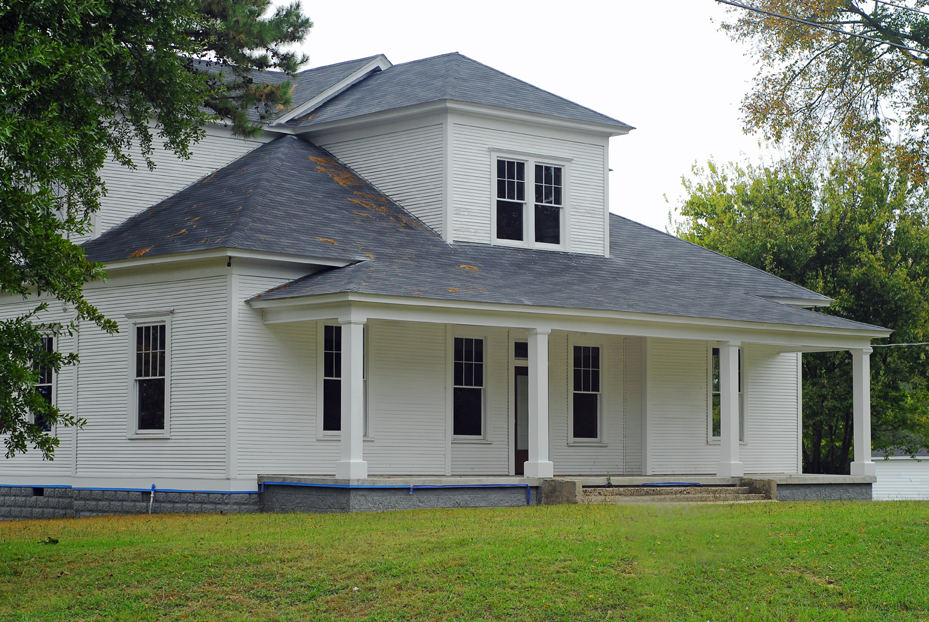 |
 |
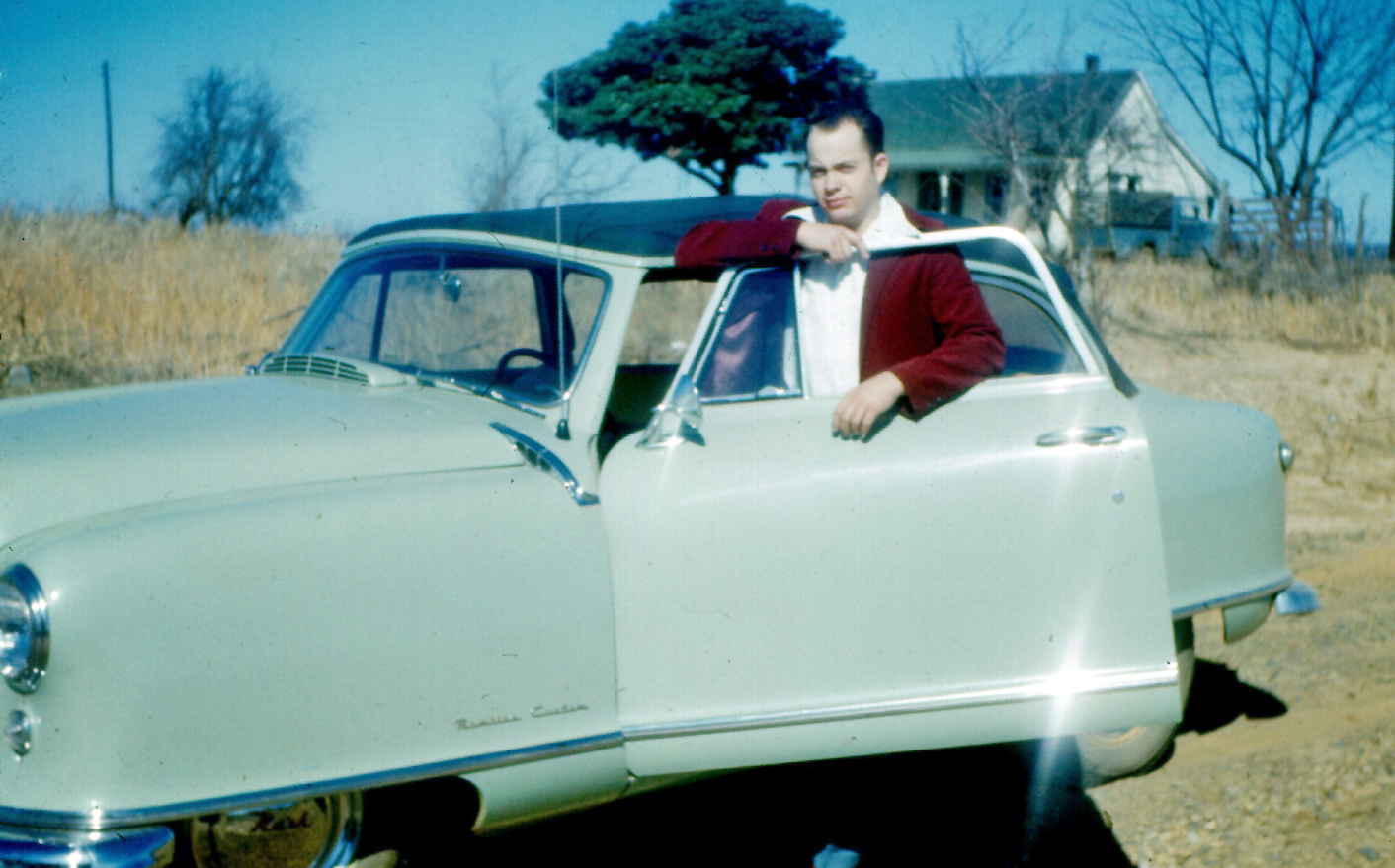 |
| Dr Odell Kirksey's Hospital, Mulberry Ar. | Gary, Conley, Rick | Conley and his 1950-53 Nash Rambler Convertible, driving was the domain of men. My mother didn't have a license until the 1960s, most women didn't drive or have licenses. |
Conley Horton O'Kelley and Zelma Azana Peters had the following children:
note - I am not sure this was planned but our father's name Conley is an Irish given name and surname, it most often appears as Connolly or O'Connolly. Gary is also an Irish given name often as Garry and sometimes as Gerry, and Rick and Rickie is a nickname used in Ireland for Patrick. I have not found the use of Dana or Coy in Irish names.
+1520 | i. | Gary Horton O'Kelley. US NAVY Reserve |
+1521 | ii. | Rick O'Kelley. US Air Force |
+1522 | iii. | Dana Harvey O'Kelley. |
+1523 | iv. | Coy Lynn O'Kelley. |